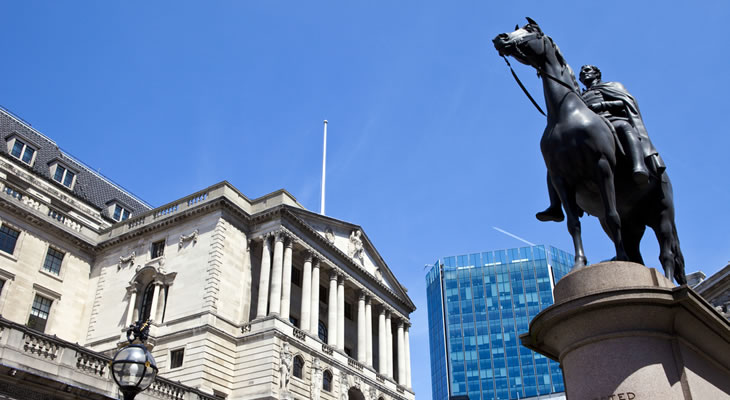Pound to Australian Dollar Exchange Rate Gains Limited as Investors Anticipate Bank of England Developments
Despite hitting its best levels since the 2016 Brexit vote on Wednesday, the Pound to Australian Dollar (GBP/AUD) exchange rate could climb even higher before the end of the week and the long-term outlook could rise too.
Due to risk-aversion hitting the Australian Dollar (AUD), GBP/AUD surged from 1.7638 to 1.8073 last week and this week the pair has continued to climb.
On Wednesday morning, GBP/AUD touched on a high of 1.8307. This was the pair’s best level since Britain voted to leave the EU in June 2016.
This week, Sterling (GBP) has been boosted by Brexit developments and optimistic ecostats, which have left investors more optimistic that the Bank of England (BoE) could prepare to hike UK interest rates again as soon as May.
Essentially, rising BoE interest rate hike bets are strengthening GBP/AUD this week.
Pound (GBP) Exchange Rates Boosted by Solid UK Job Market Results
Wednesday saw the publication of Britain’s latest job markets, which were generally impressive and left Pound investors even more optimistic that Britain’s economy would be able to sustain higher interest rates from the Bank of England (BoE) in the coming months.
Vitally, Britain’s key unemployment rate unexpectedly improved from 4.4% to a 42-year low of 4.3% in January, with the employment change figure bating 84k expectations with a strong result of 168k.
The employment rate also hit a joint record high, of 75.3%.
Investors were also pleased with Britain’s latest wage growth results, which met expectations and rose to 2.6% in the print excluding bonuses.
The print including bonuses was an even more impressive 2.8%. The figure was forecast to come in at 2.6%, but was boosted by the previous figure being revised higher from 2.5% to 2.7%
It followed Britain’s February Consumer Price Index (CPI) report, which was published on Tuesday and fell short of expectations.
Despite slowing UK inflation, analysts predict that stronger UK wages and the more optimistic Brexit outlook will be enough to pressure the Bank of England (BoE) to tighten UK monetary policy.
Australian Dollar (AUD) Weighed by Market Risk-Aversion and Lack of Support
Investors have had little reason to buy the Australian Dollar this week, as the US Presidency’s protectionist stance on global trade, as well as Federal Reserve speculation, have left risky trade-correlated currencies like the ‘Aussie’ unappealing.
Local data and news has not been particularly supportive for Australian Dollar trade either.
Tuesday’s Australian house price index report was mixed, but Westpac’s February leading index improved from -0.2% to 0.3% according to Wednesday’s report.
The Reserve Bank of Australia’s (RBA) latest meeting minutes report was also generally unsurprising, with the bank once again asserting that it was not in a rush to follow the Fed in hiking interest rates higher.
Pound to Australian Dollar Forecast: Bank of England Decision to Impact GBP/AUD Outlook
Thursday will be an influential session for the Pound to Australian Dollar (GBP/AUD) exchange rate outlook, as key Australian data will be published and the Bank of England (BoE) will hold its March policy decision.
Following days of limp movement on risk-aversion, the Australian Dollar could see stronger demand on Thursday if February’s Australian job market results beat expectations.
Australia’s unemployment rate is currently forecast to remain at 5.5%, with the employment change figure expected to improve just slightly from 16k to 20k. If these stats beat expectations it could boost Australian Dollar appetite towards the end of the week.
However, the Bank of England decision is likely to be even more influential to GBP/AUD, both in the short term and the long-term.
If the BoE indicates that a May interest rate hike is on the table, it will likely leave the Pound stronger by the end of the week.
It would also boost market bets that UK interest rates could continue to rise and boost the long-term Sterling outlook.
On the other hand, if the bank expresses concerns about slowing UK inflation, GBP/AUD is likely to weaken and the Pound outlook would dampen too.


Comments are closed.